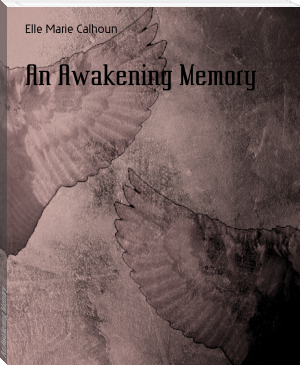Apocalypse - Ellen G. White (good book club books txt) 📗

- Author: Ellen G. White
Book online «Apocalypse - Ellen G. White (good book club books txt) 📗». Author Ellen G. White
At the time of Christ's first advent the priests and scribes of the Holy City, to whom were entrusted the oracles of God, might have discerned the signs of the times and proclaimed the coming of the Promised One. The prophecy of Micah designated His birthplace; Daniel specified the time of His advent. Micah 5:2; Daniel 9:25. God committed these prophecies to the Jewish leaders; they were without excuse if they did not know and declare to the people that the Messiah's coming was at hand. Their ignorance was the result of sinful neglect. The Jews were building monuments for the slain prophets of God, while by their deference to the great men of earth they were paying homage to the servants of Satan. Absorbed in their ambitious strife for place and power among men, they lost sight of the divine honours proffered them by the King of heaven.
With profound and reverent interest the elders of Israel should have been studying the place, the time, the circumstances, of the greatest event in the world's history--the coming of the Son of God to accomplish the redemption of man. All the people should have been watching and waiting that they might be among the first to welcome the world's Redeemer. But, lo, at Bethlehem two weary travellers from the hills of Nazareth traverse the whole length of the narrow street to the eastern extremity of the town, vainly seeking a place of rest and shelter for the night. No doors are open to receive them. In a wretched hovel prepared for cattle, they at last find refuge, and there the Saviour of the world is born.
Heavenly angels had seen the glory which the Son of God shared with the Father before the world was, and they had looked forward with intense interest to His appearing on earth as an event fraught with the greatest joy to all people. Angels were appointed to carry the glad tidings to those who were prepared to receive it and who would joyfully make it known to the inhabitants of the earth. Christ had stooped to take upon Himself man's nature; He was to bear an infinite weight of woe as He should make His soul an offering for sin; yet angels desired that even in His humiliation the Son of the Highest might appear before men with a dignity and glory befitting His character. Would the great men of earth assemble at Israel's capital to greet His coming? Would legions of angels present Him to the expectant company?
An angel visits the earth to see who are prepared to welcome Jesus. But he can discern no tokens of expectancy. He hears no voice of praise and triumph that the period of Messiah's coming is at hand. The angel hovers for a time over the chosen city and the temple where the divine presence has been manifested for ages; but even here is the same indifference. The priests, in their pomp and pride, are offering polluted sacrifices in the temple. The Pharisees are with loud voices addressing the people or making boastful prayers at the corners of the streets. In the palaces of kings, in the assemblies of philosophers, in the schools of the rabbis, all are alike unmindful of the wondrous fact which has filled all heaven with joy and praise--that the Redeemer of men is about to appear upon the earth.
There is no evidence that Christ is expected, and no preparation for the Prince of life. In amazement the celestial messenger is about to return to heaven with the shameful tidings, when he discovers a group of shepherds who are watching their flocks by night, and, as they gaze into the starry heavens, are contemplating the prophecy of a Messiah to come to earth, and longing for the advent of the world's Redeemer. Here is a company that is prepared to receive the heavenly message. And suddenly the angel of the Lord appears, declaring the good tidings of great joy. Celestial glory floods all the plain, an innumerable company of angels is revealed, and as if the joy were too great for one messenger to bring from heaven, a multitude of voices break forth in the anthem which all the nations of the saved shall one day sing: "Glory to God in the highest, and on earth peace, good will toward men." Luke 2:14.
Oh, what a lesson is this wonderful story of Bethlehem! How it rebukes our unbelief, our pride and self-sufficiency. How it warns us to beware, lest by our criminal indifference we also fail to discern the signs of the times, and therefore know not the day of our visitation. It was not alone upon the hills of Judea, not among the lowly shepherds only, that angels found the watchers for Messiah's coming. In the land of the heathen also were those that looked for Him; they were wise men, rich and noble, the philosophers of the East. Students of nature, the Magi had seen God in His handiwork. From the Hebrew Scriptures they had learned of the Star to arise out of Jacob, and with eager desire they awaited His coming, who should be not only the "Consolation of Israel," but a "Light to lighten the Gentiles," and "for salvation unto the ends of the earth." Luke 2:25, 32; Acts 13:47. They were seekers for light, and light from the throne of God illumined the path for their feet. While the priests and rabbis of Jerusalem, the appointed guardians and expounders of the truth, were shrouded in darkness, the Heaven-sent star guided these Gentile strangers to the birthplace of the newborn King.
It is "unto them that look for Him" that Christ is to "appear the second time without sin unto salvation." Hebrews 9:28. Like the tidings of the Saviour's birth, the message of the second advent was not committed to the religious leaders of the people. They had failed to preserve their connection with God, and had refused light from heaven; therefore they were not of the number described by the apostle Paul: "But ye, brethren, are not in darkness, that that day should overtake you as a thief. Ye are all the children of light, and the children of the day: we are not of the night, nor of darkness." 1 Thessalonians 5:4, 5.
The watchmen upon the walls of Zion should have been the first to catch the tidings of the Saviour's advent, the first to lift their voices to proclaim Him near, the first to warn the people to prepare for His coming. But they were at ease, dreaming of peace and safety, while the people were asleep in their sins. Jesus saw His church, like the barren fig tree, covered with pretentious leaves, yet destitute of precious fruit. There was a boastful observance of the forms of religion, while the spirit of true humility, penitence, and faith-which alone could render the service acceptable to God--was lacking. Instead of the graces of the Spirit there were manifested pride, formalism, vainglory, selfishness, oppression. A backsliding church closed their eyes to the signs of the times. God did not forsake them, or suffer His faithfulness to fail; but they departed from Him, and separated themselves from His love. As they refused to comply with the conditions, His promises were not fulfilled to them.
Such is the sure result of neglect to appreciate and improve the light and privileges which God bestows. Unless the church will follow on in His opening providence, accepting every ray of light, performing every duty which may be revealed, religion will inevitably degenerate into the observance of forms, and the spirit of vital godliness will disappear. This truth has been repeatedly illustrated in the history of the church. God requires of His people works of faith and obedience corresponding to the blessings and privileges bestowed. Obedience requires a sacrifice and involves a cross; and this is why so many of the professed followers of Christ refused to receive the light from heaven, and, like the Jews of old, knew not the time of their visitation. Luke 19:44. Because of their pride and unbelief the Lord passed them by and revealed His truth to those who, like the shepherds of Bethlehem and the Eastern Magi, had given heed to all the light they had received.
An upright, honest-hearted farmer, who had been led to doubt the divine authority of the Scriptures, yet who sincerely desired to know the truth, was the man specially chosen of God to lead out in the proclamation of Christ's second coming. Like many other reformers, William Miller had in early life battled with poverty and had thus learned the great lessons of energy and self-denial. The members of the family from which he sprang were characterized by an independent, liberty-loving spirit, by capability of endurance, and ardent patriotism--traits which were also prominent in his character. His father was a captain in the army of the Revolution, and to the sacrifices which he made in the struggles and sufferings of that stormy period may be traced the straitened circumstances of Miller's early life.
He had a sound physical constitution, and even in childhood gave evidence of more than ordinary intellectual strength. As he grew older, this became more marked. His mind was active and well developed, and he had a keen thirst for knowledge. Though he did not enjoy the advantages of a collegiate education, his love of study and a habit of careful thought and close criticism rendered him a man of sound judgment and comprehensive views. He possessed an irreproachable moral character and an enviable reputation, being generally esteemed for integrity, thrift, and benevolence. By dint of energy and application he early acquired a competence, though his habits of study were still maintained. He filled various civil and military offices with credit, and the avenues to wealth and honour seemed wide open to him.
His mother was a woman of sterling piety, and in childhood, he had been subject to religious impressions. In early childhood, however, he was thrown into the society of deists, whose influence was the stronger from the fact that they were mostly good citizens and men of humane and benevolent disposition. Living, as they did, in the midst of Christian institutions, their characters had been to some extent moulded by their surroundings. For the excellencies which won them respect and confidence they were indebted to the Bible; and yet these good gifts were so perverted as to exert an influence against the word of God. By association with these men, Miller was led to adopt their sentiments. The current interpretations of Scripture presented difficulties which seemed to him insurmountable; yet his new belief, while setting aside the Bible, offered nothing better to take its place, and he remained far from satisfied. He continued to hold these views, however, for about twelve years. But at the age of thirty-four the Holy Spirit impressed his heart with a sense of his condition as a sinner. He found in his former belief no assurance of happiness beyond the grave. The future was dark and gloomy. Referring afterward to his feelings at this time, he said:
"Annihilation was a cold and chilling thought, and accountability was sure destruction to all. The heavens were as brass over my head, and the earth as iron under my feet. Eternity--what was it? And death--why was it? The more I reasoned, the further I was from demonstration. The more I thought, the more scattered were my conclusions. I tried to stop thinking, but my thoughts would not be controlled. I was truly wretched, but did not understand the cause. I murmured and complained, but knew not of whom. I knew that there was a wrong, but knew not how or where to find the right. I mourned, but





Comments (0)